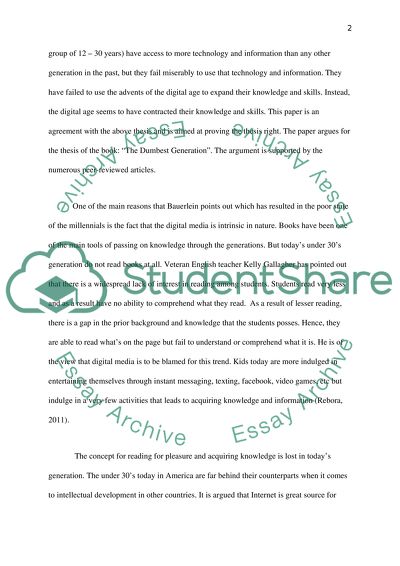Cite this document
(“For or Against the thesis of The Dumbest Generation by Mark Bauerlein Term Paper”, n.d.)
Retrieved from https://studentshare.org/journalism-communication/1584803-for-or-against-the-thesis-of-the-dumbest-generation-by-mark-bauerlein
Retrieved from https://studentshare.org/journalism-communication/1584803-for-or-against-the-thesis-of-the-dumbest-generation-by-mark-bauerlein
(For or Against the Thesis of The Dumbest Generation by Mark Bauerlein Term Paper)
https://studentshare.org/journalism-communication/1584803-for-or-against-the-thesis-of-the-dumbest-generation-by-mark-bauerlein.
https://studentshare.org/journalism-communication/1584803-for-or-against-the-thesis-of-the-dumbest-generation-by-mark-bauerlein.
“For or Against the Thesis of The Dumbest Generation by Mark Bauerlein Term Paper”, n.d. https://studentshare.org/journalism-communication/1584803-for-or-against-the-thesis-of-the-dumbest-generation-by-mark-bauerlein.


